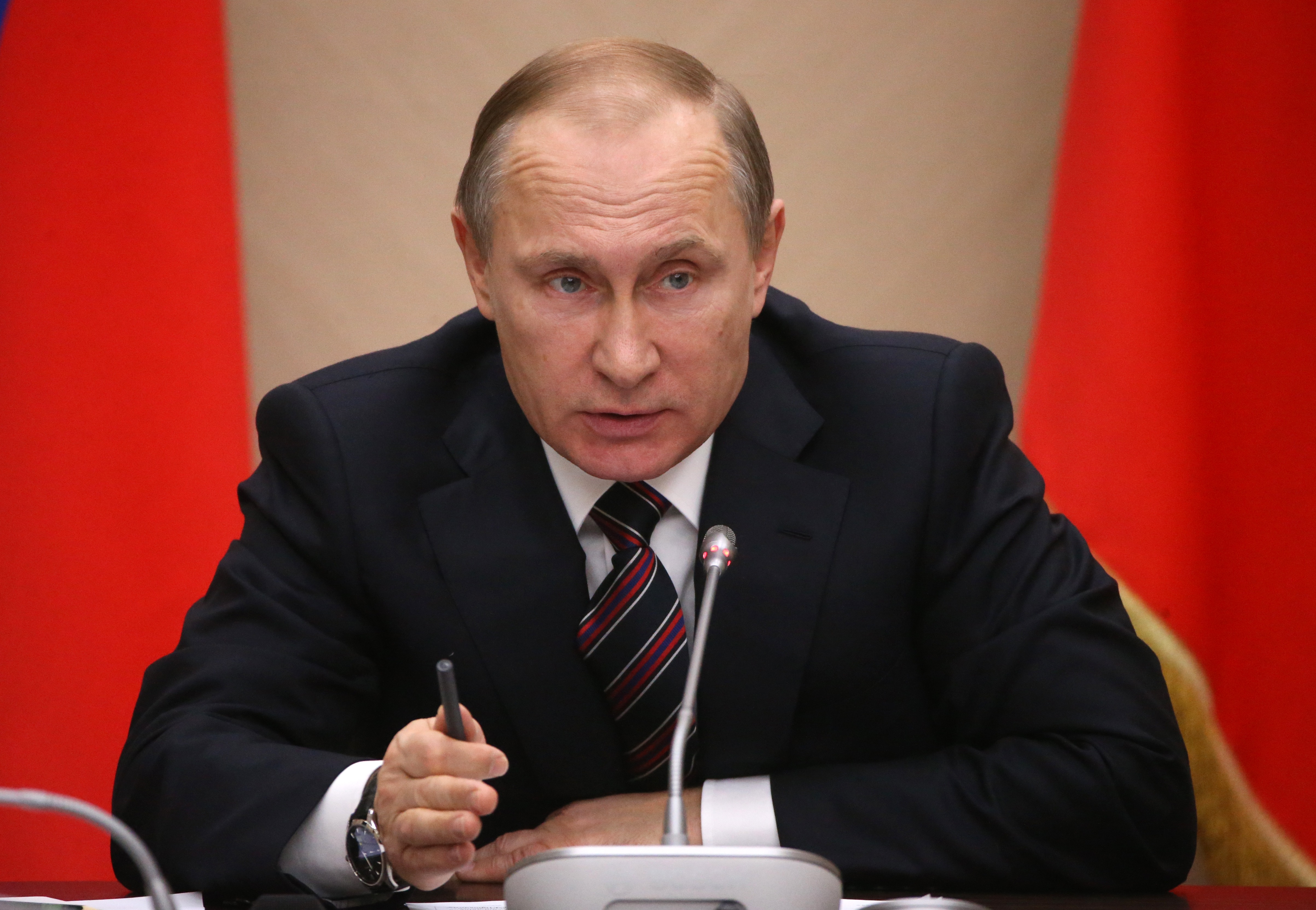Kremlin Distancing Putin From Russian Military Failures: Analysis
The dramatic lengths the Kremlin has undertaken to protect Putin from the backlash of Russia’s stunning failures in Ukraine threaten to undermine his influence at home and abroad.
The Kremlin is manufacturing a crisis with its Ministry of Defense in an attempt to distance President Vladimir Putin from the stunning retreats and other embarrassing battlefield failures in Ukraine in recent days, according to a new analysis.
The Institute for the Study of War, an independent think tank, noted that Russia has acknowledged its military’s defeat around Kharkiv, Ukraine’s second-largest city, following a surprise and startlingly effective Ukrainian counteroffensive beginning last week. That recognition breaks from the Kremlin’s prior practices of never admitting to tactical failures, including the rationale for its troops’ inability to advance on Kyiv in the first days of the invasion more than six months ago – a maneuver that Putin and his top advisers believed would topple the government in Kyiv in less than a week – or its withdrawal from Snake Island, a strategically critical point in the Black Sea.
“Kremlin sources are now working to clear Putin of any responsibility for the defeat, instead blaming the loss of almost all of occupied Kharkiv Oblast on underinformed military advisors within Putin’s circle,” the institute noted in one of its regular analyses published late Tuesday.
It notes a member of the Kremlin’s Council for Interethnic Relations, Bogdan Bezpalko, criticized Russian military leaders who “failed to see the concentration of Ukrainian troops and equipment and disregarded Telegram channels that warned of the imminent Ukrainian counter-offensive in Kharkiv Oblast should have their heads ‘lying on Putin’s desk.’”
Putin delayed a meeting with his generals immediately after his forces’ withdrawal from Kharkiv “increasing the appearance of a rift between the Kremlin and the Russian MoD,” the analysis notes.
“The Kremlin’s admission of defeat in Kharkiv shows that Putin is willing and able to recognize and even accept a Russian defeat at least in some circumstances and focus on deflecting blame from himself.”
Ukraine’s twin counteroffensives in recent days – in Kharkiv and another in the south near the Crimean Peninsula, which analysts originally believed was a feint to cover for the former – have compounded the existing problems facing Putin since his disastrous decision to invade on Feb. 24. Recent reports document dramatic shortages among his forces of equipment and logistical support along with a general unwillingness to fight. Russia has resorted to desperate measures to recruit new forces to send to the front, though it remains unclear how it can offset what the Pentagon earlier this week described as the “very hard problem to solve” that Ukraine and its Western backers have created for the invading army.
The question of Putin’s own longevity has emerged amid persistent Western speculation that the stunning failures – and the embarrassing state of the Russian military that they have exposed – may prove too tough an obstacle for the autocratic Russian leader to remain in power.
Public support for the president remains firm, though it has wavered by some accounts.
Internal dissent has also risen. The New York Times reported on a petition by 40 local elected officials in Russia that ended with: “We demand the resignation of Vladimir Putin from the post of president of the Russian Federation!”
The institute also noted in its analysis that several members of the Russian State Duma, its lower house of parliament, expressed concern on Tuesday at a regular meeting, with Communist Party Leader Gennady Zyuganov calling on the Kremlin to call for a full mobilization of its military forces – something Putin’s government has so far refrained from doing as a part of his insistence on referring to it only as a “special military operation,” not a “war.”
“We have no right to lose,” Zyuganov said.
Russia’s latest defeat is “causing panic among Russians in occupied Ukrainian territories, servicemen, and milbloggers,” the analysis states, noting reports that Russian and Kremlin-backed officials in occupied Ukrainian territory are selling their houses and evacuating their families.
And it adds that Moscow’s failures are weakening its position in other former Soviet territories of increased consequence in recent weeks. The Kremlin for example has so far declined to say whether it will fulfill treaty obligations to Armenia to provide military support for its ongoing violent territorial dispute with neighboring Azerbaijan.
“Russia’s hedging approach may damage Russia’s relationship with Armenia” and other treaty allies, it notes, “particularly If Russia cannot provide military or peacekeeping support.”
Thanks for reading

No comments